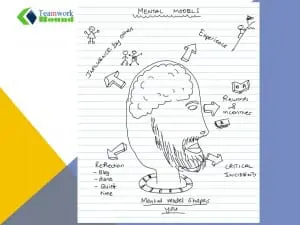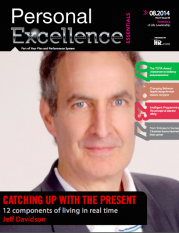Mental Models and Shaping Teams
The programs Mental Models and Shaping Teams , we run are very much experiential in nature. It usually entails training sessions that will require teams to see perspectives from a different point of view. For instance, we conducted a strategy planning workshop for a group of senior executives recently. The key challenge for this team is to rationalize the slow decline of the products they historically used in the past 85 years. From being a market leader in Europe, they have forayed into the Asia Pacific region, tapping on to the emerging markets around Singapore.
As teams grapple with strategies, one key need is for individuals to create mental models that will cast aside misconceptions and strategies used and abused before. Hence, the need to change the mental models of team member’s view of the challenges ahead. We undertake this with activities that will astound individuals when the solution is achieved. Its like a “aha” experience that gets the teams down in all fours, yes literally working out how new solutions can be worked on to increase their market share in a competitive environment.

Mental model
The influence of our own mental models and shaping teams also dictate the way we behave in office or at home. For the endurance athlete, his mental model is centred on putting in hard work to achieve the athlete’s high. He trains day and night religiously. He ensures, training sessions are not missed and he knows the mileage for his runs, rides and swims must happen to compete and finish a race as tough as an Ironman. In retrospect, compare that with a Gambler who gets his high in a game of chance played out in a Casino. What constitutes a gambler’s mental model? The lucky charm he carries with him, the prayers he offers selectively, or the trepidation of losing his entire lifesavings, only to salvage it 10 times more in a throw of dice with his last throw. Statistically, that rarely happens. Sink in the right mental model and shaping teams helps you to do things right.
Here are some examples of how companies changed their mental models and shaping teams to remain competitive. Xerox, for instance transformed from a company that specialized in photography paper to one that is synonymous with Copy machines. Polaroid is a classic example of one company that did not change and they have died a natural death. Lets look within your Team members, how their mental models are shaped;
Influence of others – your school, teachers, the books you read, and even mass culture, (national propaganda, through papers and news shapes you too)
Personal experience – how we cope with challenges in life will affect our subsequent approaches to challenges that will come our way
Rewards and incentives – your mental models are also shaped by the rewards you receive for holding on to them
Reflections – reflecting on your actions, education and experiences will have a consequence impact on your mental models
Critical incidents – not just experience, but an incident that has a profound impact on your views of the world, will change your mental models too ( I realized a half baked Colonel is capable of nothing less then being a cheat, plagiarizing on an assignment)
In a team building program, where strategy mapping is also weaved in, it helps when the facilitator is able to articulate and show the mental models and shaping teams that are holding them back. Its a plus if he is also a visual graphics facilitator.
The use of activities in mental models and shaping teams can help to drive these points across. We run one activity that has a statistical average of just 10% success when teams attempt them. It transcends logical thinking, and the solution usually blows them away, leaving our training sessions with a commitment to reach in deep, to break down barriers. We have achieved that with companies that we have worked with and we continue to create the same impact with clients who choose to work with us.
Reference
Wind, Yoram (Jerry), and Colin Crook, with Robert Gunther, Making better sense: How your mental model defines your world. Upper Saddle River, NJ: Financial Times Press, 2010.
About the Author: Ebnu Etheris Ma.IDT, B.Hrd
Related Posts
- Categories: People analytics, DISC profiling tool
In today's competitive business landscape, effective team collaboration and talent retention are crucial for organizational success. One powerful tool that can facilitate both of these objectives is the use of DISC model. Find out how you use this tool to maximise engagement and team performance at work.
- Categories: People analytics, Belbin Team Roles
Unlock the secrets to successful teamwork at the work place using Belbin Team roles. What are the secrets that enhances team performance at the work place is shared in this article. The 7 secrets towards enabling high performance and our approach in conducting Belbin Singapore programs are shared.
Top 10 activities
This blog will showcase top 10 experiential activities that we have conducted in our training programs. Included are models associated with experiential learning, team dynamics, understanding personality and leadership. We will showcase crisp summary of good books we have read on this blog as well.
Ebnu Etheris
MA.IDT and B. Ed & Trn
Founder Teamworkbound
Magazine Feature

Personal Excellence Magazine (Aug 2014 issue) based in Canada featured our article.

Human Resources Magazine (July 2012 issue), featured Teamwork Bound views on what it takes to engage senior managers.
Our Evaluations
Blog articles
Get started with Teamwork Bound
Want to learn what Teamwork Bound can do for you? See for yourself with a free trial, tests and short in house speaking engagements. We will assure you that our program evaluations meet 85% percentile score, failing which we will not charge for our training sessions.
